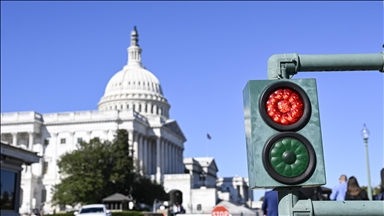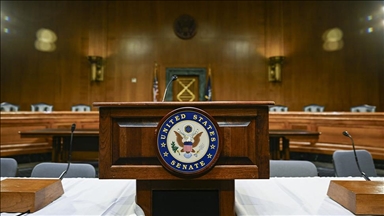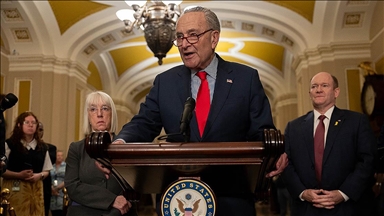Senate reauthorizes mass phone data collection
67-32 vote ends battle within Senate between security, civil liberties advocates

WASHINGTON
The Senate on Tuesday passed the USA Freedom Act, revising controversial mass data collection powers that have lapsed since Sunday.
The 67-32 vote ends a battle within the Senate between security and civil liberties advocates – most notably Republican Sen. Rand Paul – over the mass collection of American’s telephone records originally envisioned in Section 215 of the Patriot Act.
Rather than have the government collect and hold the records, phone companies will now be expected to maintain them, and government agencies will be able to access them once they receive an intelligence court’s order based on a “specific selection term”.
The original program, which was brought to light by former NSA analyst Edward Snowden, will now be phased out during the next six months.
President Barack Obama said he will sign the bill as soon as it reaches its desk, but lambasted lawmakers for "a needless delay and inexcusable lapse in important national security authorities.
"I am gratified that Congress has finally moved forward with this sensible reform legislation," he said in a statement.
Earlier Tuesday, the White House, which has strongly defended the bill, called on Senate Republicans to stop jeopardizing American security and pass a “clean” version of a House bill that was passed in May.
“What's clear is we've seen Republicans in the United States Senate already play far too many games with a piece of legislation that's critical to the national security of the United States and the civil liberties protections of the American people,” spokesman Josh Earnest told reporters.
Senators debated for hours Tuesday about whether they should pass an amended version of the bill. According to Senate rules, an amendment would have required a simple-majority 51 votes to pass, but the majority of Republicans and Democrats successfully prevented such action.
Paul, a vocal Republican opponent of the bill, introduced nine amendments to the bill jointly with Democratic Sen. Ron Wyden. But none received a vote as they would have required unanimous consent to do so.
One such amendment would have raised the threshold for the government to collect call records from “reasonable grounds” as is stipulated in the bill, to “probable cause”, a higher constitutional standard.
Senate Majority Leader Mitch McConnell, who opposes the bill because it curbs mass data collection powers, said on the Senate floor that the bill does not improve privacy, and undermines security.
"It does not enhance the privacy protections of American citizens. And it surely undermines American security by taking one more tool form our warfighters at exactly the wrong time," he said.
If the Senate had voted to approve additional amendments to the House bill, it would have had to go back to the House for approval.
Instead, the bill will now go directly to Obama to be signed into law.
Anadolu Agency website contains only a portion of the news stories offered to subscribers in the AA News Broadcasting System (HAS), and in summarized form. Please contact us for subscription options.







